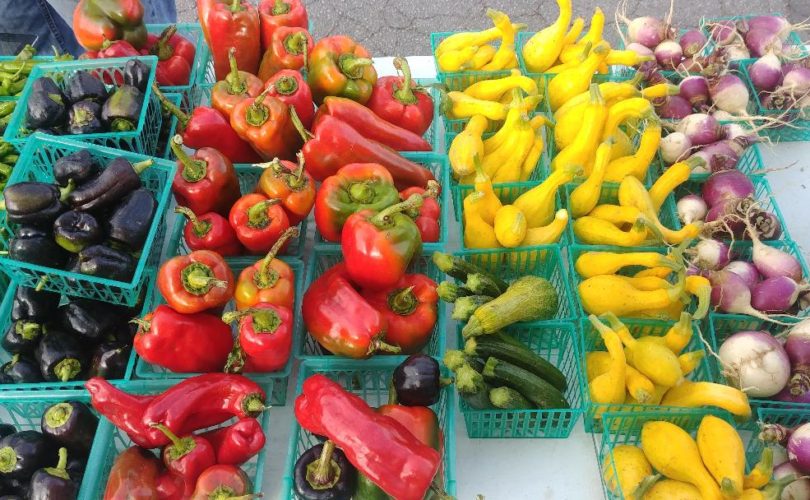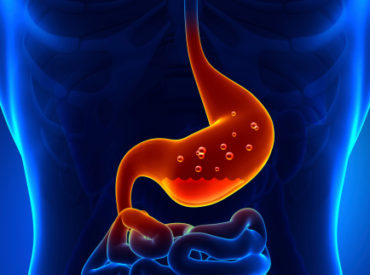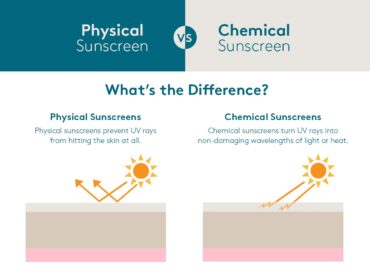This photo shows a nice selection from our local farmer’s market and such wonderful color even for a fall harvest. A farmer’s market is a great place to find affordable, organic produce. Let’s face it—the prices of organic produce and food items in the grocery store can be quite expensive and not affordable to some. Fortunately, there are frozen organic produce options that are less expensive and usually picked at the height of ripeness. I try and buy organic and usually do so for approximately 90 percent of what we purchase. I love knowing that I’m providing my body with quality nutrients it requires to operate optimally.
So, why is buying organic foods so important?
- Is it because the flavor is better? Well, in many cases, I find this to be true (especially strawberries and apples which are both very heavily sprayed with pesticides). But this is not always the case.
- Is it because organic foods have more vitamins? Study results are mixed as to whether the nutrient content of organic food is higher; it definitely depends on the source – and on the soil quality.
- Is it because organic food is not loaded with toxic chemicals? YES! I believe the most important reason to choose organic produce is because of what it’s not: it is not toxic. It has not been sprayed with chemicals designed to penetrate the food and last for weeks – rain or shine. And as chemical-laden as our society has become overall, we desperately need help in reducing the daily toxic onslaught we ask our bodies to manage. We are learning more and more each research year about the connections between pesticides and herbicides and human disease….the rampantly increasing incidence of anything from celiac disease and non-celiac gluten sensitivity to ADHD in children. Are organic foods 100% free of pesticides? No. Cross-contamination has largely removed that possibility for commercial food production. However, organic fruits and vegetables have on average 180 times less pesticide contamination than conventionally produced. That is a big difference in toxicity.
As previously noted, I understand that organic is substantially more expensive and, at times, difficult to source. In terms of expense, I believe we largely pay now (for health) vs. pay later (for illness). Therefore, my commitment to investing generously in my wellness – in feeling fantastic – is a high personal priority. But both of those constraints are legitimate barriers for many, and thus, I think it’s important to have tools to help you to prioritize your organic choices. I advocate buying as much organic food (1) as you can find and (2) as you can afford.
When you shop in the produce section, do you know which foods are the cleanest and which are the dirtiest? Most of us don’t. Thankfully, we have the Environmental Working Group (www.ewg.org) which publishes an annual report ranking fruits and vegetables for residual pesticide content (given current conventional farming practices and actual food assays). They famously publish a short, convenient subset of that list in a handy wallet-sized card – or PDA download – called the “Clean 15 and Dirty Dozen”. The Dirty Dozen are the foods currently retaining the highest concentration of pesticides, and thus, these are foods I recommend you not purchase unless you can obtain an organic version. The Clean 15 are those foods with the least chemical retention, so you can feel more confident making a non-organic choice with them, especially in managing your budget. Are you surprised to learn that mangos are one of the cleanest? How about celery and spinach being some of the dirtiest? The results aren’t always obvious! The best part is that these guidelines are updated every year to reflect current agricultural practices and outcomes.
What are some of the effects of pesticides and herbicides on the body? Can they really be that damaging? Pesticides and herbicides have been shown to contribute to a wide variety of damage in the body including nervous system toxicity like ADHD in children, estrogen spikes that can cause miserable PMS and menopause symptoms, and the inability to lose weight. Seriously, this is not up for speculation! The clinical data is quite damning. It is important to understand scientifically that RoundUp, one of the most common herbicides in use in farming, contains one of the most potent estrogen mimickers in our society today: glyphosate. These estrogen mimickers – or xenoestrogens – are chemicals that disrupt our endocrine system by fitting into estrogen receptors and causing a spike in hormones that the body didn’t intend. I believe strongly that this is one of several major factors contributing to the near-epidemic increase we have seen in both breast and prostate cancer (in men, the prostate is the most estrogen-sensitive tissue). There is also interesting initial research questioning whether glyphosate might be a major driver in the rapidly increasing incidence of intestinal permeability, celiac disease, and even atheroscloerosis (That is, clogging of the arteries that can lead to heart attack or stroke. When you click, don’t let the title of this last video turn your away. It goes way beyond statins to showcase some recent research findings about the potential role of glyphosate in creating atherosclerosis. Fascinating!).
Also, remember that your liver processes and removes (along with your kidneys) all of these additional chemicals you are ingesting. This goes along with the chemicals you breathe in, that you lather on your hair, put on your skin, etc. It can be an enormous burden on the liver to process all of these chemicals and this can deplete your nutrients and cause a lot of internal stress.
I highly recommend buying organic produce whenever possible, but at least be sure to prioritize organic choices to avoid the dirtiest produce. Keep in mind that “washing” conventional produce – even with citrus-based cleaners – does not remove the chemicals on the inside of the food. As I mentioned, visit a local farmer’s market for typically pesticide-free foods (be sure to ask!) that are super-fresh and thus higher in nutrients than foods that were trucked thousands of miles to the grocery store. For you and your family’s long-term wellness, don’t be apathetic about the chemicals you allow in your food, on your skin, or in your home. Be informed, feel empowered and live with better health and more energy!






